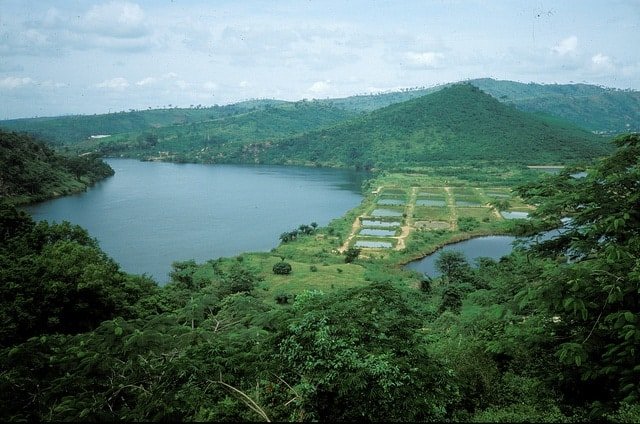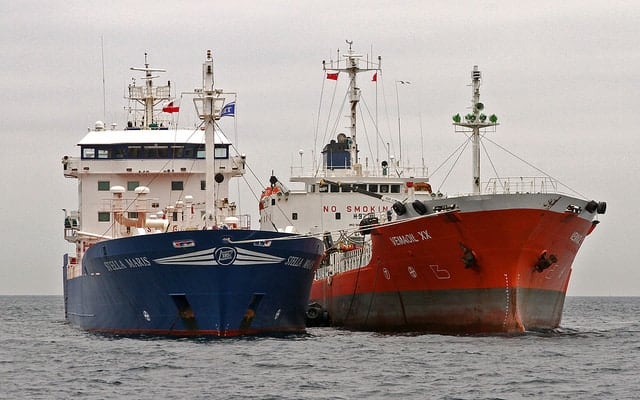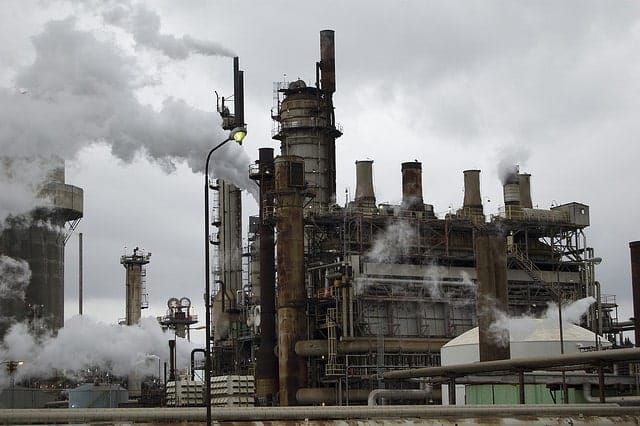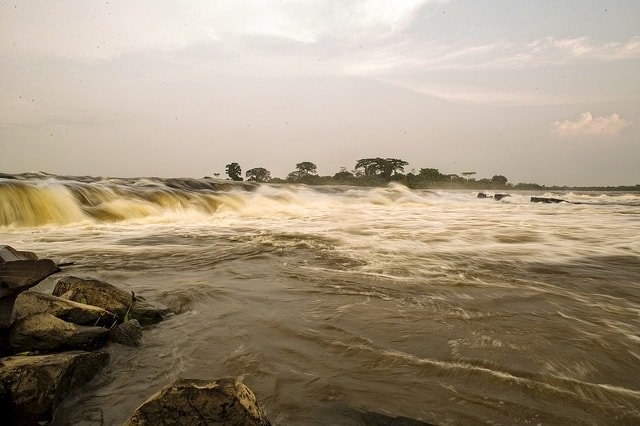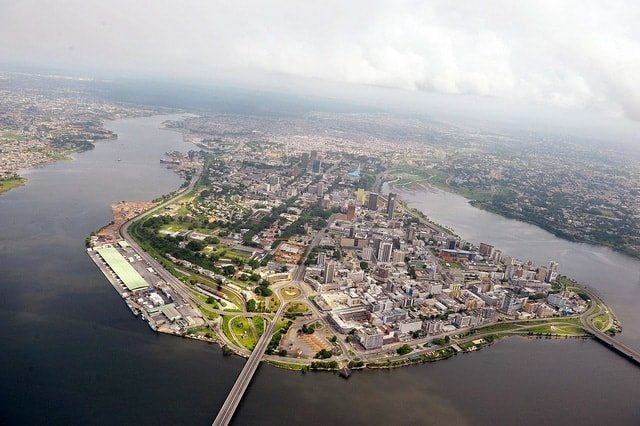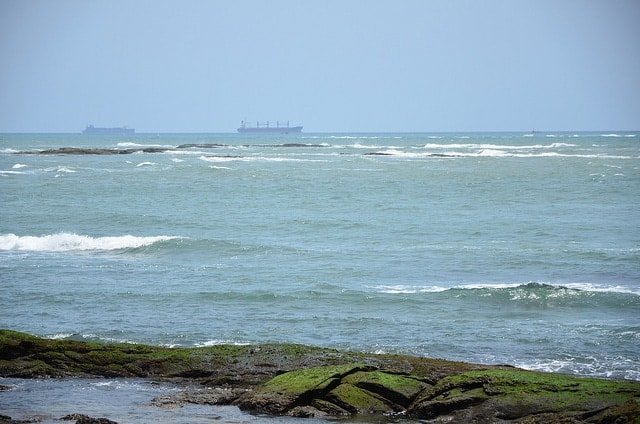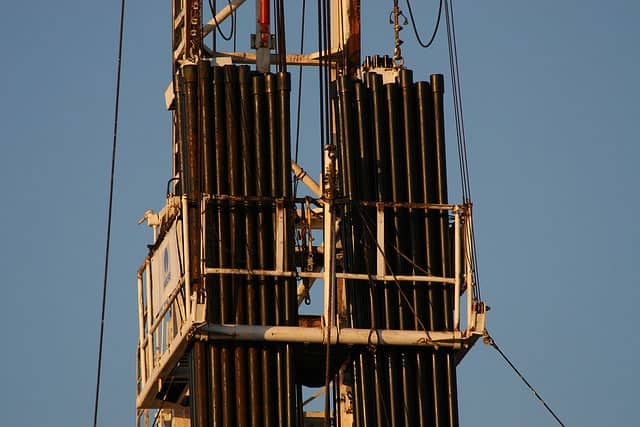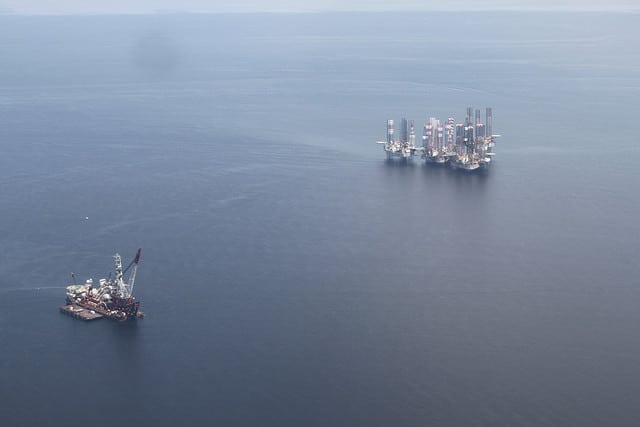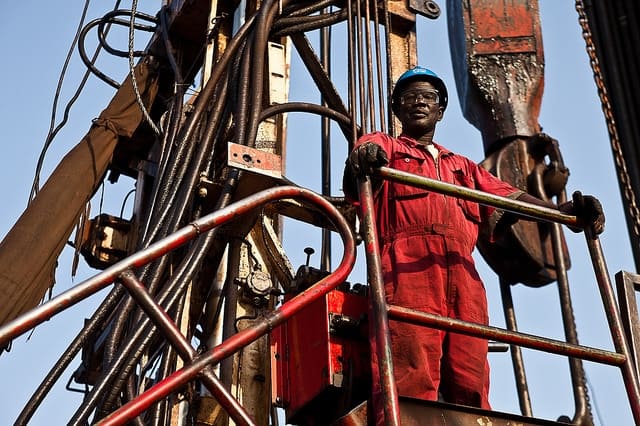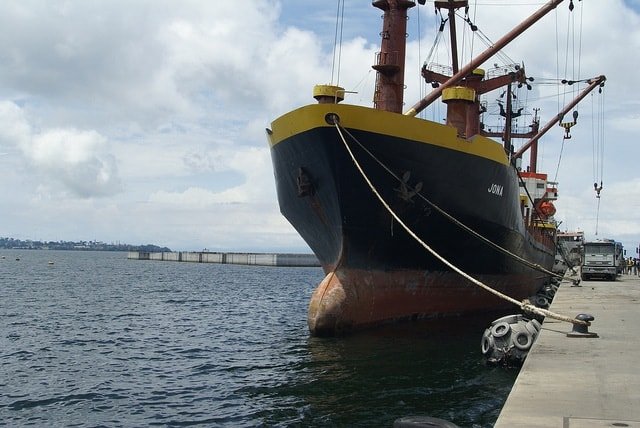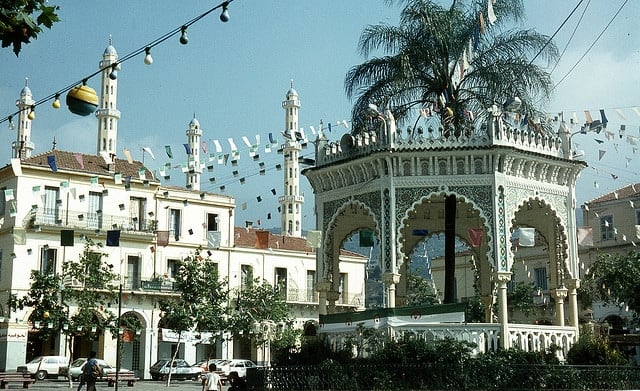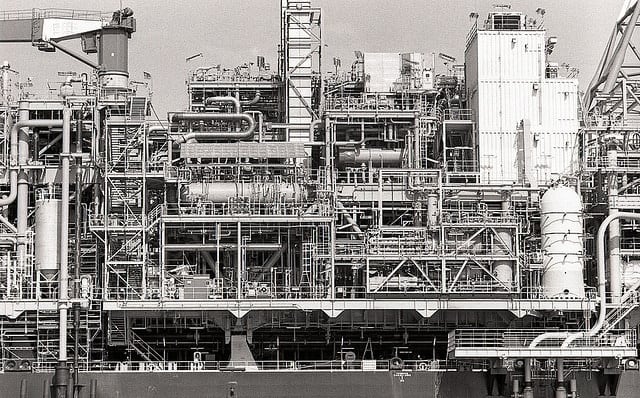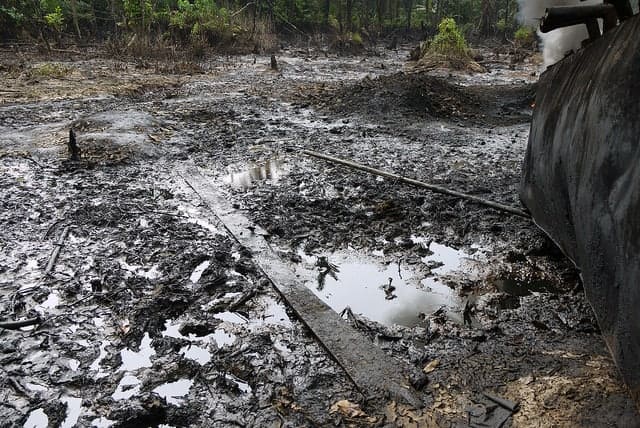Which countries are the top oil producing countries in Africa? How much do they produce and where do they rank on global production?
Goldman Sachs expects that oil prices would remain “low” for fifteen years while OPEC expects the price of oil to reach $80 a barrel by 2020, this is bad news for the oil-producing countries in Africa.
The African continent is the home to some of the world’s fast-growing economies. Many of these developing economies rely on crude oil for foreign exchange earnings and the sharp decline in the price of oil has caused steep currency slides in Nigeria, Angola, and many other oil-producing countries are expected to devalue their respective local currency further.
Top Oil Producing Countries In Africa
These are the top oil producers in Africa, their daily capacity, and world ranking.
20. Malawi – 200 Barrels Per Day
World Ranking: 114
Malawi produces just 200 barrels of oil a day; it is ranked as the last among the top 20 oil producers in Africa and as the 114th among the largest oil producers in the world. The prospect of large oil deposits under Lake Malawi is an active beacon of hope for Malawi, which is one of the poorest countries in the world. The potential wealth from Oil production in Malawi could strengthen the economy of Malawi which relies on agriculture. There are high hopes for major Oil production in Malawi, but the government of Malawi must ensure oil is a blessing not a curse to its people.
19. Morocco – 5100 Barrels Per Day
World Ranking: 97
It is ranked as 19th among the richest oil producing African countries, and it is the 97th largest oil producing country in the world. Morocco produces 5100 barrels per day, and it is lauded for its well-developed oil infrastructure. Major pipelines, seaports, airports, and roadways are located near the major cities that have the necessary amenities. The government has been undertaking many attempts to improve the country’s potential for oil production. Since most of its reserves, especially sedimentary basins, are unexplored, authorities have initiated immediate exploration activities.
18. Mauritania – 6,000 Barrels Per Day
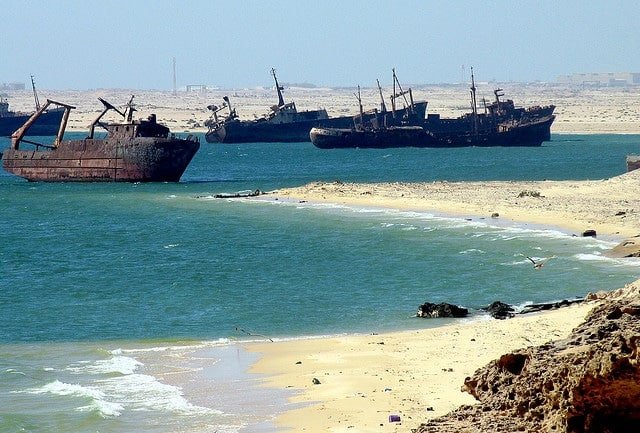
World Ranking: 95
Mauritania is the 18th largest oil producer in Africa and 95th largest producer of oil in the world. Oil was discovered in Mauritania at the Chinguetti Oil field in 2001. Oil production started in February 2006, and Mauritania now produces about 6000 barrels of oil a day. Mauritania’s crude oil reserves are estimated at around 600 million BPD, and the oil sector is expected to contribute to the economy of Mauritania, which the mining industry accounts for around 25% of GDP.
17. Niger – 20,000 Barrels Per Day
World Ranking: 78
The Republic of Niger is ranked as the 17th biggest oil producer in Africa and the 78th largest oil producer in the world. The Republic of Niger, the fourth highest producer of uranium in the world became an oil producing country in 2011. Oil reserves are estimated at 1 billion barrels and its daily production of 20,000 barrels per day is expected to rise to 80,000 barrels per day by 2016. The current oil production is consumed locally; the county plans to export around 60,000 barrels per day once the second phase the development of the Agadem block is completed.
16. DRC Congo – 20,000 Barrels Per Day
World Ranking: 78
The Democratic Republic of The Congo is ranked 16th among the oil producing countries in Africa and 78th in the world. DR Congo has the second largest oil reserves in southern Africa with a proven crude oil reserve of 180 million barrels. Oil contributes a significant share of foreign earnings to the economy of DR Congo; daily oil production is around 20,000 barrels per day, the country has no refinery, which means it exports crude oil and imports refined petroleum products.
15. Côte d’Ivoire – 37,000 Barrels Per Day
World Ranking: 66
Cote d’Ivoire is one of the largest oil producing nation in West Africa and the 15th largest oil producer in Africa. It produces approximately 37,000 barrels daily which makes it the 66th largest producer of oil in the world. The government expects its energy drive to boost oil production to 200,000 barrels a day by 2020.
14. Tunisia – 59,000 Barrels Per Day
World Ranking: 61
Tunisia is the 14th biggest oil producing nation in Africa and the 61st largest oil producer in the world with a daily production capacity of 59,000 barrels. Tunisia discovered of oil in 1964 at El Borma oil field near its frontier with Algeria. The Ministry of Industry regulates the oil industry in Tunisia and distributed and marketed by Société Nationale de Distribution du Pètrole.
13. Ghana – 59,000 Barrels Per Day
World Ranking: 47
Ghana is the 13th and 47th largest oil manufacturer in Africa and the world respectively. The Jubilee oil field, which was discovered in 2007, came online in 2010. Ghana now produces 59,000 barrels daily from the Jubilee field, which has about 3 billion barrels oil reserves.
12. Cameroon – 81,000 Barrels Per Day
World Ranking: 52
Cameroon is the 12th largest producer of oil in Africa and 52nd in the world. Cameroon currently produces 81,000 barrels of oil per day. Cameroon’s daily production is expected to rise to 150,000 barrels a day in 2016 the country only has a meager 200 million BPD reserves, but it plans to expand its refining capacity by opening a new refinery that will service oil-rich neighbours Angola and Nigeria.
11. Chad – 115,000 Barrels Per Day
World Ranking: 49
Chad is the 11th biggest oil producing country in Africa and the 48th largest oil producing country in the world. Oil production in Chad began in 2003, after the completion of the pipeline connecting Chad to the Atlantic Ocean via Cameroon. Its daily production capacity is approximately 115,000 barrels per day, and it has about 1.5 billion barrels of oil reserves.
10. South Africa – 160,000 Barrels Per Day
World Ranking: 41
South Africa is the 10th largest oil producer in Africa and the 41st highest oil producing country in the world. It has a daily output of around 160,000 barrels. South Africa has just 15 million barrels of proven crude reserves and its crude oil production continues to decline as oil fields mature. The large economy and the well-developed infrastructure of South Africa are the two main strengths of its oil industry; it has the second-largest crude oil refining capacity in Africa.
9. Gabon – 210,000 Barrels Per Day
World Ranking: 37
Gabon is the 9th largest oil producer in Africa and the 37th in the world with a daily production capacity of 210,000 BPD. Gabon has been facing declining oil output for more than a decade as a result of mature oil fields and absence of significant new finds. Gabon’s economy is reliant on its oil production; Oil revenue accounts for 56% of total government revenue.
8. Congo, Republic of the – 227,000 Barrels Per Day
World Ranking: 36
The Republic of Congo is the 8th highest oil producing country in Africa and the 36th largest oil producing country in the World. Oil production accounts for about 85% of Republic of Congo’s export revenues and almost 80% of the government’s total revenue. Congo’s oil daily production is around 227,000 barrels, a figure expected to decline as a result of natural declines at mature fields.
7. Sudan & South Sudan – 255,000 Barrels Per Day
World Ranking: 35
Sudan and South Sudan are the 7th largest oil producing African Countries and the 35th largest oil producers in the world. Most of the oil production capacity is now in South Sudan after it gained independence from Sudan in 2011, but it has to use Sudan’s export pipelines and port which make the two countries dependent. Unified Sudan was the second-largest non-OPEC oil producer in Africa before the split in 2011. The division has led to a decline in oil production for both countries; they are now ranked as the fourth-largest non-OPEC African oil producer.
6. Equatorial Guinea – 317,000 Barrels Per Day
World Ranking: 34
With a daily production rate of 317,000 barrels, Equatorial Guinea is ranked sixth among the highest oil producing countries in Africa and 34th in the world. Equatorial Guinea’s 1.1 billion barrels of proven crude oil reserves is the eighth-largest in Sub-Saharan Africa. Equatorial Guinea’s economy is dependent on its oil and natural gas industry, which accounts for almost 95% of its GDP and 99% of its export earnings.
5. Libya – 528,000 Barrels Per Day
World Ranking: 29
Libya oil reserves of 48 billion barrels are the largest in Africa and the 9th largest in the world. Libya produces 528,000 barrels of crude oil daily, which makes it the fifth biggest oil producer in Africa and the 29th largest oil producer in the world. Libya’s economy depends on the oil sector, which contributes over 95 per cent of export earnings.
4. Egypt – 582,000 Barrels Per Day
World Ranking: 27
Egypt daily oil production of 582,000 barrels is the fourth highest among the oil producing countries in Africa, and it is the has the 27th highest oil output in the world. Egypt is the largest non-OPEC oil producer in Africa, and it is a major transit route for oil shipped from the Persian Gulf to Europe and the USA. Egypt has the largest oil refining capacity in Africa; it refines most of its crude, and it has one of the most advanced energy facilities in Africa.
3. Algeria – 1,171,000 Barrels Per Day
World Ranking: 17
Algeria is third largest oil-producing African country and the 17th largest oil producer in the world. Algeria has an oil reserve of about 12 billion barrels and a daily production capacity of 1.7 million BPD. The oil and gas sector of Algeria is the mainstay of the economy; it accounts for about 35 percent of Algeria’s GDP and two-thirds of its total exports.
2. Angola – 1,507, 000 Barrels Per Day
World Ranking: 16
Angola is the second largest oil-producing African country and the 16th largest oil producing nation in the world with a daily production of 1.5 million barrels. It is the 12th member of OPEC and is currently exporting nearly 90% of crude oil to China and the U.S.A. The economy of Angola is largely dependent on oil, Oil production accounts for 40% of Angola’s GDP, the country has an estimated 8 billion barrels of oil reserves.
1. Nigeria – 1,900,000 Barrels Per Day
World Ranking: 13
Nigeria is Africa’s biggest oil producer and the 13th largest producer of oil in the world with daily production reaching about 1,9 million barrels. Nigeria also has the second largest proven oil reserves in Africa and the 10th largest in the world. The petroleum industry has been plagued by massive corruption, militancy, oil spills and oil theft but it remains the major export and biggest source of foreign earnings for Nigeria.
List of Top Oil Producing Countries in Africa
| Rank | Country | Barrels Per Day |
|---|---|---|
| 1 | Nigeria | 1,900,000 |
| 2 | Angola | 1,507,000 |
| 3 | Algeria | 1,171,000 |
| 4 | Egypt | 582,000 |
| 5 | Libya | 528,000 |
| 6 | Congo, Republic of the | 317,000 |
| 7 | Sudan and South Sudan | 255,000 |
| 8 | Equatorial Guinea | 227,000 |
| 9 | Gabon | 210,000 |
| 10 | South Africa | 160,000 |
| 11 | Chad | 115,000 |
| 12 | Cameroon | 81,000 |
| 13 | Ghana | 59,000 |
| 14 | Tunisia | 59,000 |
| 15 | Cote d' Ivoire | 37,000 |
| 16 | DRC Congo | 20,000 |
| 17 | Niger | 20,000 |
| 18 | Mauritania | 6,000 |
| 19 | Morocco | 5,100 |
| 20 | Malawi | 200 |
Devaluation or Diversification
There aren’t many options the central bank of these African oil producers can take to protect their currency. They are all going to devalue their national currencies if they cannot find an alternative source of foreign exchange.
Short-term measures such as defending a local currency with foreign reserves is not a strategy that could be adopted a long term, diversification is not a short task either but with slowing growth rates in China, investors might start looking at developing economies with a stronger lens.
